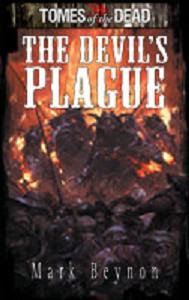
Coburn’s been dead now for close to a century, but seeing as how he’s a vampire and all, it doesn’t much bother him. Or at least it didn’t, not until he awoke from a forced five year slumber to discover that most of human civilisation was now dead - but not dead like, oh no..
I wanted to read DD as soon as I got wind of the concept: a vampire in waking up during the zombie apocalypse and discovering that his food is now an endangered species. Coburn is the vampire in question, and it’s immediately clear that he’s not someone used to being denied.
DD opens with Coburn’s awakening, an unexpected trickle of blood reaching his withered, blood-starved body. It’s a peach of an opening chapter and does a fine job of hooking you and setting the tone for what’s to come.
It’s a fair assumption that most people will be familiar with the parameters of a post zompocalyptic world, particularly in the wake of The Walking Dead, and Wendig doesn’t waste any words setting up the basics, letting him get on with fleshing out Coburn. By turns violent, arrogant and sarcastic, Coburn is nonetheless a witty and likeable character, which is quite an accomplishment. Later on, when pieces of the story of his life before his enforced slumber start to emerge, it rounds off his character quite neatly.
It’s not an easy transition for Coburn, going from a supremely confident and borderline smug predator to having to shepherd his food to somewhere safe and secure, while being inexorably dragged into the messy personal histories and interactions of the living.. and the unpleasant realisation that in order to survive he’s going to have to think about more than his appetite. Particularly when the zombies who’ve mutated after coming into contact with his blood finally close in. It's handled very well, and while Coburn is changed by what's he's experiencing, it's a gradual and believably messy process in keeping with the rest of the story, rather than any kind of sudden, fairy godmother like epiphany.
Fast and bloody good fun, Double Dead delivers everything you’re expecting it to and then some. I finished it in a day, and enjoyed it thoroughly (particularly the cannibal barbecue- brilliant!). It’s a fresh perspective on a favourite theme with lashings of dark humour and a charismatic main character I’d really like to see more of.

You can visit Chuck's website here.

















